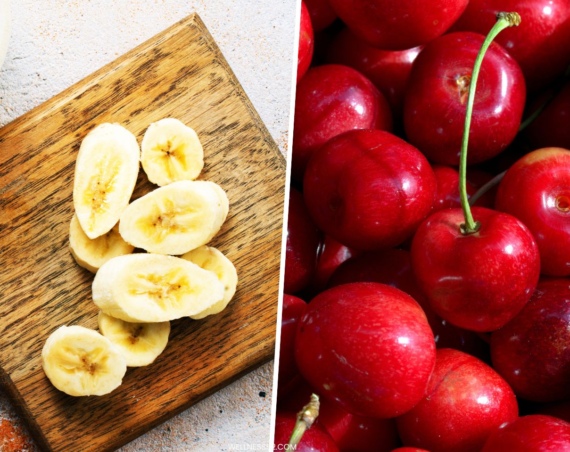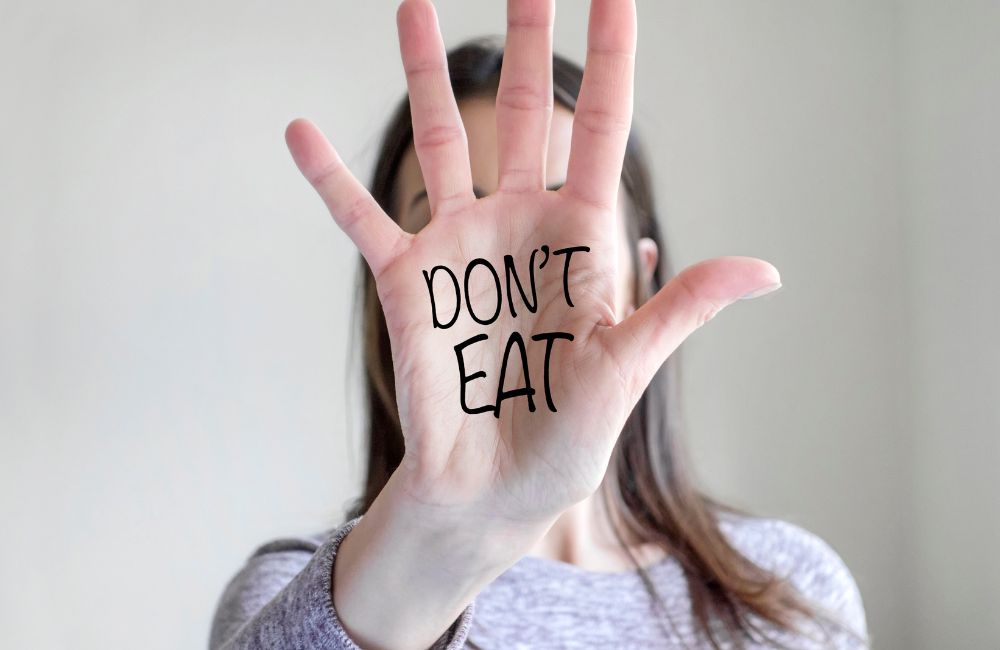
Don’t get me wrong, no foods are completely off-limits. But there are some that if you can avoid them, you should.
I’m not talking about spoiled foods, I’m talking about common foods you will find at your local grocery store. Some of these you may even have in your refrigerator or pantry right now.
Below are 12 foods Registered Dietitians are urging you to limit or avoid if you can.
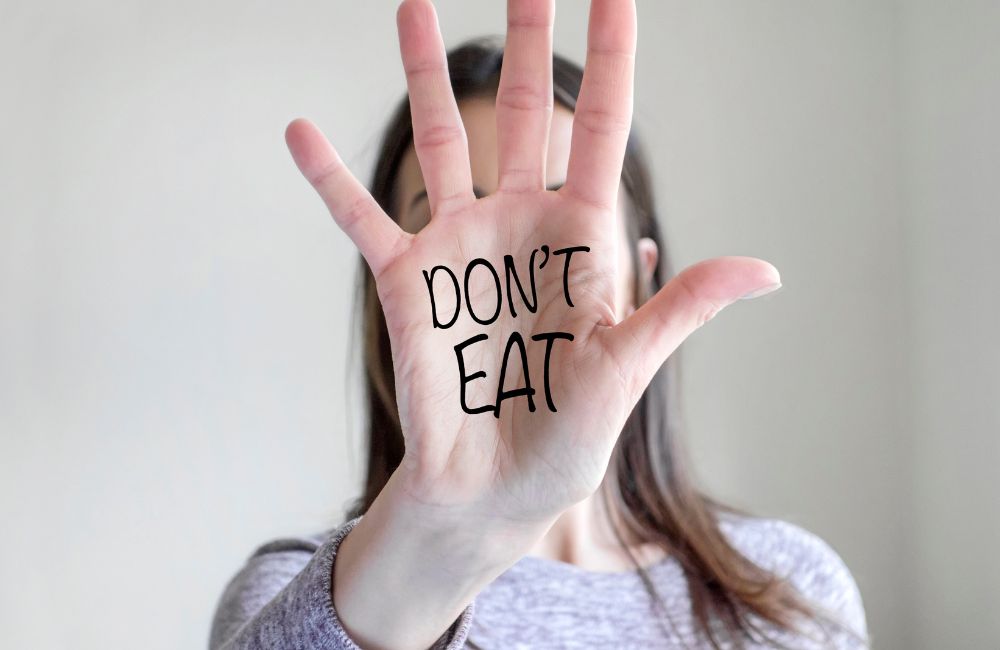
You may also like:
14 Foods the Longest-Living People in the World Eat Every Day
Why You Should Eat a Banana Before Bed Every Night
1. Sugar-sweetened beverages
Whether you are choosing soda, fruit drinks, energy drinks, or any other sugar-sweetened beverage (SSB), you may want to rethink your drink. Regular soda contains an astronomical number of added sugars, about 30 to 40 grams on average.
That is the amount you would find in 1-2 regular-size candy bars. According to the CDC, consuming large amounts of SSBs is linked to concerns.
These include weight gain, obesity, type 2 diabetes, heart disease, kidney disease, and more (1).
If that doesn’t scare you, caramel coloring should. A recent study linked the amount of caramel coloring present in one soda to a 58% higher risk of developing cancer.
SSBs are any beverage that has sugar added to it. This includes soda, fruit drinks, sports drinks, energy drinks, and sweetened water (1, 2).
2. Sugar-Free or Diet Beverages
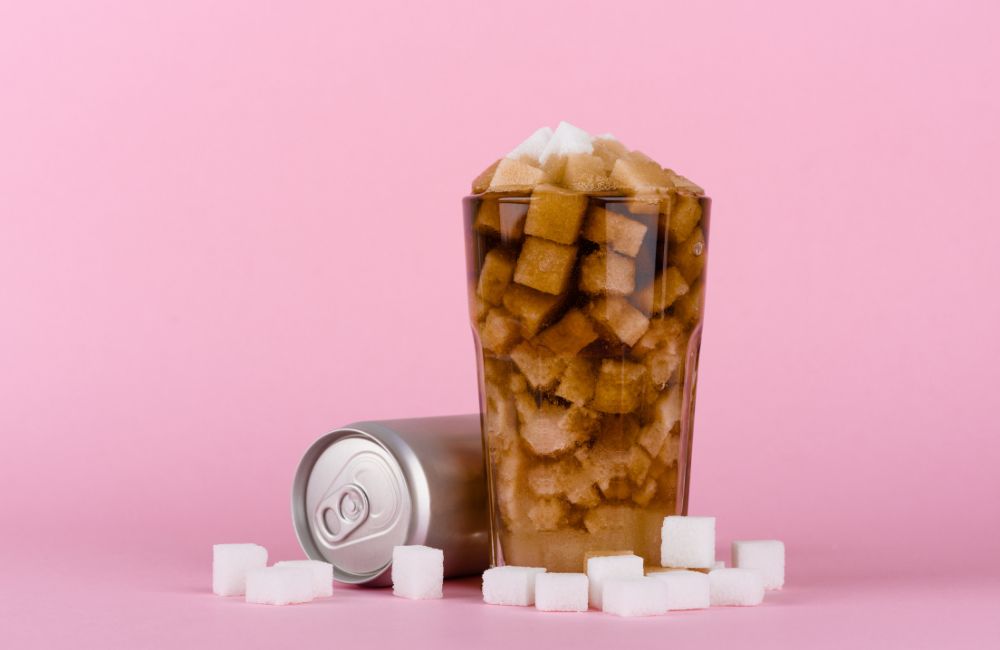
But what if you opt for a sugar-free or diet beverage? Although diet and sugar-free beverages do not contain sugar or calories, they may still cause health effects.
Most notable is weight gain. Studies have also linked high amounts of artificial sweeteners to an increased risk of developing cancer (3).
3. Processed meats
Processed meats are a common staple in many American households. Products such as salami, ham, bacon, hot dogs, and sausage are a few examples of popular processed meats.
Not only are these products loaded with saturated fats, but they are also high in sodium. Sodium is used to enhance flavor, extend shelf life, and improve the texture and appearance of food.
Unfortunately, our body only requires a small amount of sodium per day. Overeating can increase health risks, such as high blood pressure. Elevated blood pressure can raise the risk of heart attack or stroke (4).
Nitrates and nitrites are often added to processed meats to prevent the growth of harmful bacteria. Some studies have linked a high intake of these compounds in processed meats to stomach cancer.
Although they are naturally occurring in fruits and vegetables, nitrates and nitrites are harmful when they convert into nitrosamines.
Because of this, manufacturers are required by law to limit the amount they use in their products. If you consume high amounts of these products they can add up and increase your risk (5).
4. Processed cheese
Processed cheeses are another on the list to avoid if you can. When you think of processed cheese, American cheese is usually the first to come to mind. In fact, it can hardly be classified as cheese at all.
Packed with milk fat, emulsifiers, food coloring, and sodium, American cheese not only tastes wrong, but it is also harmful in large quantities.
With a high fat and sodium content, processed cheeses can increase your risk of developing high blood pressure and obesity. Better to stick to the real thing.
5. Margarine and butter alternatives

Much like cheese, opting for real butter might be better for you than reaching for an alternative.
Products such as margarine and I Can’t Believe It’s Not Butter were created for the health-conscious. Made from vegetable oils and containing less saturated fat than regular butter, it sounds like a good choice, and some are.
However, not all butter alternatives are created equal, especially when it comes to margarine. Some contain trans fats and high amounts of sodium, both of which can increase the risk of heart disease.
If choosing one of these products, look for one that does not contain trans fats (6).
6. Sugar-free candies and baked goods
Like diet sodas, sugar-free products such as candies and baked goods aren’t always the healthier option. Although they can be great alternatives for those with blood sugar challenges, consuming too many of these products can have a negative effect.
Frequent consumption of artificial sweeteners poses a cancer risk. Although you can opt for more natural sugar alternatives, such as sugar alcohols, consuming too many of these can cause stomach upset as they are not digestible.
Unless you enjoy a laxative effect when consuming sugar-free chocolate, you probably want to steer clear of these products (3).
7. Potassium bromates
Potassium bromate is a common ingredient added to bread and crackers to help the dough rise during baking. Although it may seem innocent enough, this additive has been linked to certain cancers in animal studies.
Although there aren’t any current regulations for it in the United States, other states have made a ban on this additive.
Instead of risking it, stick with bread and crackers that are freshly baked that do not contain potassium bromate on the ingredients list, or that are labeled “Potassium Bromate-Free.” (7).
8. Propylparaben
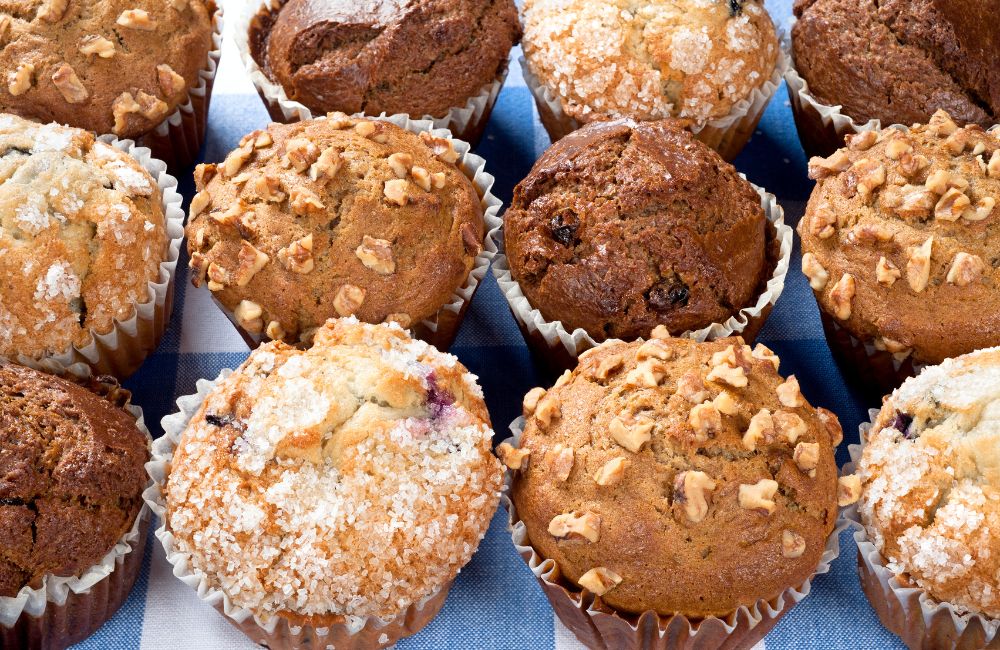
Propylparaben is an additive found in muffins and corn tortillas. It acts as a preservative and can be found listed on the ingredients list of the food label for these products.
Some studies have found a connection between the consumption of propylparaben with infertility and increased breast cancer risk. It’s believed this is because propylparaben acts like estrogen in the body.
Although the body of evidence for this is not strong, there are still many unanswered questions. Instead of taking the risk, look for products that do not contain propylparaben, or opt to make your own (8).
9. Microwave popcorn
If you are a popcorn lover, I apologize for this one. Although it may seem like there couldn’t possibly be anything wrong with eating microwave popcorn, the concern lies within the bag.
Microwave popcorn bags contain chemicals, such as perfluoro-octane sulfonic acid (PFOS). PFOS is believed to affect fertility and kidney function, and increase cancer risk in human and animal studies (9, 10).
Some bagged popcorn varieties also contain MSG as an additive. MSG, or monosodium glutamate, is a flavor enhancer.
Although it’s labeled generally recognized as safe by the FDA, it has been linked to various side effects including headaches, flushing, sweating, numbness, chest pain, weakness, and more. Skip the unpleasant side effects and grab some air-popped popcorn instead (11).
10. Fat-free ice cream
Who doesn’t want to enjoy a whole pint of ice cream without exceeding 300 calories? If that sounds too good to be true, it’s because it is.
Although these ice creams have become quite popular among health enthusiasts, they are guilty of containing a high amount of added calorie-free sweeteners and gums.
Just because something is lower in calories, doesn’t make it better for you. Instead, opt for a small portion of the real thing and limit it to moderation.
11. Deep-fried foods
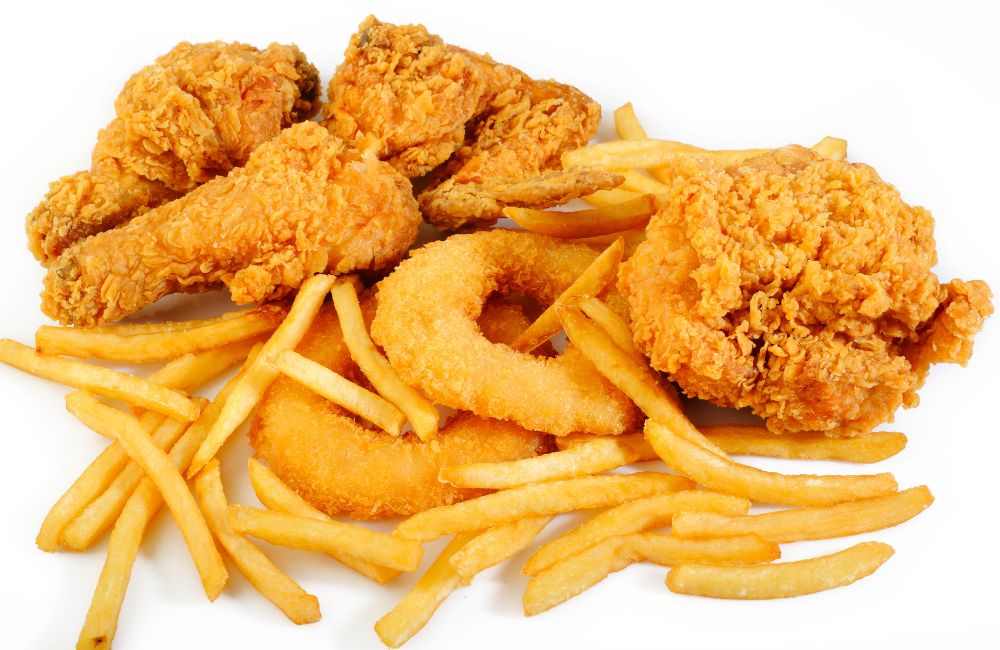
Fried chicken, French fries, onion rings, corn dogs, and anything of the like are considered deep-fried food. Although they sure are tasty, deep-fried foods are associated with a myriad of health concerns.
Deep frying adds a significant amount of fat and calories to foods which can increase your risk of heart disease, obesity, type 2 diabetes, and more.
Deep-fried foods also often contain high amounts of salt in the batter which can increase your risk for high blood pressure. Instead, swap your fried foods for sauteed, baked, or grilled (12).
12. Charred meats
Charred meats are another on the list to avoid. Cooking meats at high temperatures can increase carcinogenic chemicals.
In fact, The American Institute for Cancer Research cautions against diets high in charred meats as this increases the formation of heterocyclic amines.
Heterocyclic amines are known carcinogens produced when meat is cooked at high temperatures or exposed to smoke. These carcinogens are also found in cigarette smoke and car exhaust fumes (13).
Bottom Line
If you eat a lot of these foods, you may want to reconsider some of your food options. Although you don’t have to completely give many of these things up. Instead, look for better alternatives.
For example, swap out those SSBs and diet/sugar-free drinks for seltzer or fruit-infused waters.
Ditch the packaged popcorn for air-popped and opt to buy fresh bread instead of processed. Making some of these small changes can have a big impact on your overall health, so why not?


